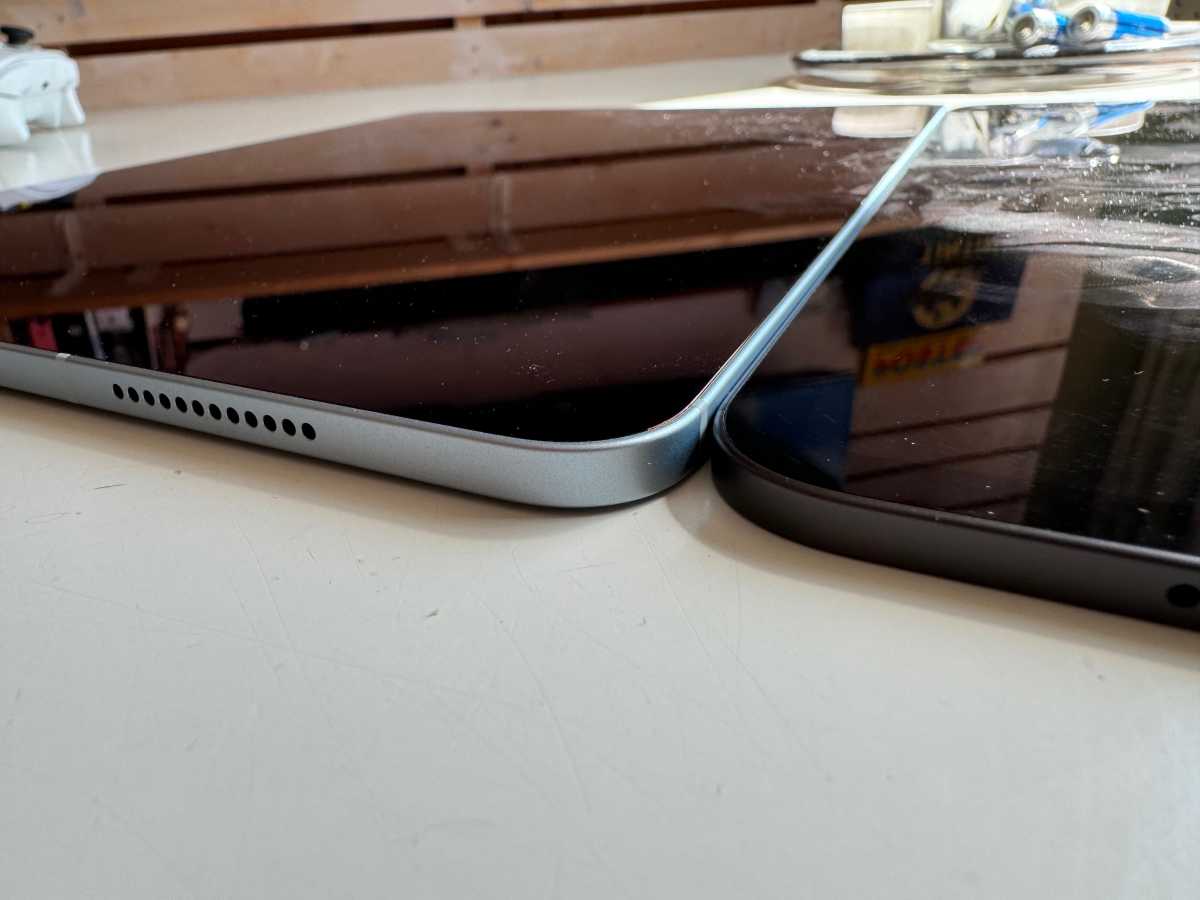It doesn’t take long for iPhone rumors to circulate. It’s one of the most iconic and influential tech gadgets of all time, and everyone wants to know what’s coming next. That Apple is so secretive only heightens the appeal of iPhone rumors and leaks.
So it should come as little surprise that iPhone 17 rumors, leaks, and info started to circulate months before the iPhone 16 was even formally announced. Here’s everything we know so far, but don’t take any of it as solid info: even when early rumors are accurate, plans can change, and nothing is ever certain until Apple announces it.
Updated January 3: A report from Sisa Journal in Korea claims the ‘iPhone 17 Air’ will be 6.25mm thick and priced around the same and the iPhone 17 Plus would be (around $899 U.S.).
iPhone 17: Release date
Here’s something we do know: The new iPhone lineup is almost always announced in September—usually on a Tuesday in the second week of September, to be specific. So we would expect the iPhone 17 line to be announced on or around September 9, 2025. Here’s when the most recent models were released:
- iPhone 15: September 12, 2023
- iPhone 14: Sepember 7, 2022
- iPhone 13: Sepember 14, 2021
- iPhone 12: October 13, 2020 (delayed due to Covid)
Historically, preorders for the iPhone begin on the Friday after the announcement, and the phones ship a week later. On occasion, some specific models may ship a couple of weeks later than the others due to production issues.
iPhone 17: Price
We haven’t yet heard if the iPhone 17 line will cost the same as the iPhone 16 line, which at this time hasn’t even been announced yet. One rumor from a popular leaker on Weibo contends that the “Plus” model will be replaced by the new “Slim” model that costs more than the Pro Max, though it won’t have the same processor and RAM and the Pro models. The supposed pricing would be:
- iPhone 17: 6.27-inch LTPO display, A19/8GB ($799)
- iPhone 17 Pro: 6.27-inch LTPO display, A19 Pro/12GB ($1,099)
- iPhone 17 Pro Max: 6.86-inch LTPO display, A19 Pro/12GB ($1,199)
- iPhone 17 Slim: 6.65-inch LTPO display, A19/8GB ($1,299)
This would mean a significant upward shift in overall iPhone pricing, with the Pro model jumping up $100 and a new model replacing the Plus with a price of $100 more than the Pro Max.
iPhone 17: Colors
We haven’t yet heard anything about what colors to expect from the iPhone 17 line. The iPhone 16 comes in five colors including Ultramarine, Teal, Pink, White and Black. While the iPhone 16 Pro comes in Desert Titanium, Natural Titanium, White Titanium and Black Titanium, which are reminiscent of the classic gold and space gray options. There were rumors that the iPhone 16 would also come in purple, so perhaps that’s in the pipeline for 2025.
iPhone 17: New slimmer ‘Air’ model


The iPhone 17 is expected to have an ultra-thin model like the M4 iPad Pro.
Petter Ahrnstedt
It’s been rumored for years that Apple is planning to launch a new model with higher-end features above the Pro Max. It looks like it may finally arrive in 2025. Several analysts have reported that the existing Plus model will be replaced by a new “Slim” model with a larger screen size and a much thinner body. Analyst Jeff Pu was the first to report this change (in May 2024), and in the same month, The Information reported on the Slim model, stating that it would be a new even-higher-end model that sits above “Pro Max” in the lineup and would have a centered rear camera and a smaller Dynamic Island.
In October 2024 Pu said he expects the phone to have an A19 chip (not A19 Pro), 8GB of RAM, around a 6.6-inch display, an aluminum body, and a single 48MP rear camera.
A video by Jon Prosser in August 2024 surmises that the slim iPhone will be called the iPhone Air (we agree that makes sense) and will not be the most expensive in the lineup, but rather be a mid-priced model that prioritizes form and design over specs, much like the MacBook Air. Additionally, a report by Mark Gurman of Bloomberg in August 2024 claimed the new model will fit between the standard iPhone and the Pro: ” If you want something snazzier than a standard iPhone–but don’t really need the performance, screen size, or cameras of a Pro model–you can get something that looks much cooler while still having the specifications of a regular iPhone.”
Another report (in July) suggested that Apple won’t use resin-coated copper components on the mainboard due to quality issues with the supplier. This was one of the ways Apple planned to reduce internal space requirements, so it’s unclear if it will have an impact on the iPhone 17 slim model’s overall thickness or not.
Apple jumped back on the thin train with the launch of the M4 iPad Pro in May 2024. Another report from Jeff Pu in November 2024 claims that the iPhone 17 Air/Slim will be around 6mm thick. That’s thinner than any iPhone so far. The iPhone 16, for context, is 7.8mm thick. The thinnest new iPad Pro is 5.1mm thick.
In a report from The Information, we learn that the iPhone 17 Air will be less than 6mm thick, have only the one earpiece speaker, a single centered rear camera, and no mmWave support. It also doesn’t currently have a SIM tray, which may prohibit it from being sold in China.
According to Korea’s Sisa Journal, the so-called iPhone 17 Air will be 6.25mm thick and cost in the same price range as the iPhone 16 Plus (starting at $899 U.S.).
iPhone 17: Rumored new features
All iPhone 17 models have been rumored to feature a 24MP front-facing camera and the always-on display is supposed to finally be available on the non-Pro models. Some believe that ProMotion will come to the non-Pro models too, since the same LPTO technology that enables the always-on display is what makes ProMotion possible, in Apple’s iPhone implementation. If true, it would be the first time Apple has offered ProMotion on a non-Pro device.
Some iPhone 17 models (maybe even all of them) will have a new camera bump, a wide rectangular raised area that stretches across the phone similar in style to Google’s Pixel line. According to a leaked image of one iPhone 17 aluminum frame (we don’t know from which model), it will be substantial in size.
Apple is also said to be working with Corning on a new anti-glare and scratch-resistant glass for the iPhone 17 lineup.
All iPhone 17 models are expected to have aluminum frames and bodies (with glass), rather than steel frames or titanium bodies in the Pro models today.
A report from The Information in July 2024 claims that “at least one” model will feature a mechanical aperture, which would be new for iPhones but has been seen in a handful of Android phones so far.
We don’t know much about what chips will power the iPhone 17 line, but we expect the high-end models (Pro and possibly Slim) will get an A19 Pro, while the non-Pro models may get a standard or cut-back version of the A19, or perhaps a more souped up variant of the A18.
Since Apple bumped every iPhone 16 model to 8GB of RAM due to the demands of Apple Intelligence, rumors have suggested Apple will increase the memory in the iPhone 17 Pro models to 12GB.
An October research note from analyst Jeff Pu corroborated these claims, and added that the iPhone 17 Pro would feature a 48MP telephoto camera along with a new 24MP front camera.
When it comes to wireless, the cellular modem is likely to still be supplied by Qualcomm; Apple’s own efforts to produce a top-tier 5G modem seem to be stalled and likely won’t be ready in time for next year’s iPhone 17 line. Wi-Fi 7 support seems likely, too.
iPhone history
The iPhone 16 range and the iPhone SE 3 are the current-generation models available from Apple. In addition to this SE 4 model we’re also expecting iPhone 17 to launch in 2025. Below you can find links below to our reviews of all iPhone models, including the latest generation. Learn more about all the new Apple products coming this year and when is the next Apple event. You might also want to check out our advice on when is the best time to buy a new iPhone, our iPhone buying guide, and our comparison of every iPhone that is available to buy today.
- Original iPhone (2007) review
- iPhone 3G (2008) review
- iPhone 3GS (2009) review
- iPhone 4 (2010) review
- iPhone 4s (2011) review
- iPhone 5 (2012) review
- iPhone 5c (2013) review
- iPhone 5s (2013) review
- iPhone 6 (2014) review
- iPhone 6 Plus (2014) review
- iPhone 6s (2015) review
- iPhone 6s Plus (2015) review
- iPhone SE (1st generation; 2016) review
- iPhone 7 (2016) review
- iPhone 7 Plus (2016) review
- iPhone 8 (2017) review
- iPhone 8 Plus (2017) review
- iPhone X (2017) review
- iPhone XR (2018) review
- iPhone XS (2018) review
- iPhone XS Max (2018) review
- iPhone 11 (2019) review
- iPhone 11 Pro (2019) review
- iPhone 11 Pro Max (2019) review
- iPhone SE (2nd generation; 2020) review
- iPhone 12 (2020) review
- iPhone 12 Mini (2020) review
- iPhone 12 Pro (2020) review
- iPhone 12 Pro Max (2020) review
- iPhone 13 (2021) review
- iPhone 13 mini (2021) review
- iPhone 13 Pro (2021) review
- iPhone 13 Pro Max (2021) review
- iPhone SE (3rd generation; 2022) review
- iPhone 14 (2022) review
- iPhone 14 Plus (2022) review
- iPhone 14 Pro (2022) review
- iPhone 14 Pro Max (2022) review
- iPhone 15 (2023) review
- iPhone 15 Plus (2023) review
- iPhone 15 Pro (2023) review
- iPhone 15 Pro Max (2023) review
- iPhone 16 & 16 Plus review
- iPhone 16 Pro & Pro Max review





